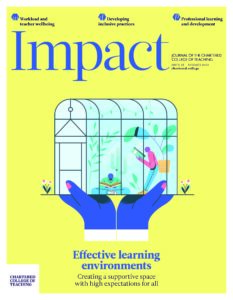Research-based activities to promote student flourishing

Helen Hampson, Research and Development Manager, Sevenoaks School, UK
Christina Hinton, CEO, Research Schools International; Research Affiliate, Harvard Human Flourishing Program
Ayse Yemiscigil, Postdoctoral Research Fellow, Harvard Human Flourishing Program
Mark Beverley, Director of Institute of Teaching & Learning, Sevenoaks School
Jon Beale, Teacher of Philosophy/Research Fellow, Sevenoaks School
Ben Hill, Researcher, Research Schools International
Introduction
There is a growing global movement to promote flourishing in education. The Human Flourishing Program at Harvard University defines flourishing as a state of complete well-being, characterised by happiness and life satisfaction, a sense of meaning and purpose, good character and virtue, physical and mental health, and close social relationships (VanderWeele, 2017). In this study, researchers from Research Schools International (RSI) and Harvard collaborated with Sevenoaks School to conduct research on student flourishing. We collected survey data from 866 students and analysed this data using a mixed methods approach. Results revealed that male students and students in lower school years reported greater flourishing than others. Furthermore, findings illustrate how Sevenoaks supports student flourishing through exercise, humour, volunteering, kindness, supporting healthy eating and sleeping, and inspiring a sense of wonder. Results also identified ways that Sevenoaks can further support flourishing, such as engaging students in more gratitude or mindfulness practices.
What does it mean to flourish?
The Human Flourishing Program at Harvard (HFP) defines flourishing as ‘complete human well being’: ‘a state in which all aspects of a person’s life are good’ (VanderWeele, 2017, p. 8149), including the following five domains:
- happiness and life satisfaction
- mental and physical health
- meaning and purpose
- character and virtue
- close social relationships.
Tyler J. VanderWeele argues that each of the above domains are key features of flourishing because they are ‘generally viewed as an end in itself’ and ‘nearly universally desired’ (2017, p. 8149).
Our project aimed to answer the following research questions:
- To what degree are students at Sevenoaks flourishing?
- Which research-based practices are Sevenoaks using regularly to support students’ flourishing?
- Which research-based practices can Sevenoaks implement more often to further support students’ flourishing?
Methods
Throughout this research, RSI worked in partnership with Sevenoaks teacher and student research fellows. A group of 20 students (in Years 9-12) and teachers took up the opportunity to become involved as fellows and worked alongside RSI to learn about educational research and human flourishing, and to develop their research skills, including learning about survey design and qualitative data analysis.
The project commenced with a literature review of recent academic publications on wellbeing and flourishing which informed the design of our survey and contextualised our results in the broader academic literature base. The RSI team worked with our student and teacher research fellows to design a student survey framed around the research questions above. The fellows helped tailor the questionnaire for different year groups and to the school context, including shaping the wording of questions and offering insights into research-based practices they were aware of at the school. The survey consisted of validated scales measuring student flourishing and several related constructs, as well as additional multiple choice and short-answer questions related to flourishing and activities that research has shown promote flourishing.
The HFP’s Flourishing Measure includes ten statements on a scale from zero to ten. We used the Adolescent Flourishing Measure, which modifies some of the items from the Flourishing Measure to be developmentally appropriate for adolescents aged 12-18 . The final score for the scale is calculated as the sum of the scores for all items and has a range of 10 to 100 (Mean = 70, SD = 15).
Student participation was voluntary and responses were kept anonymous. Parents received information about the project and were given the opportunity to opt their child out, though only a very small number did so. Students completed the survey online during designated tutor times in Spring 2021, with the questionnaire taking approximately 15-20 minutes to complete. The survey was administered across all year groups and 886 students completed it.
The RSI research team analysed the data using a mixed methods approach including quantitative and qualitative analyses. For the quantitative data, we used a multiple regression method where flourishing was regressed on each socio-demographic factor: female vs. male; racial/ethnic minority status; school year; bursary status or parents’ education levels; and boarding status. We also measured average self-reported encouragement from the school for given activities that supported flourishing (e.g. exercise and humour), using a scale of one to five (1= Rarely, 5 = Very Often). We separately measured students’ perceived support from the school for each activity in (i) classes, (ii) co-curricular activities, and (iii) informally, as part of school culture. We did not find meaningful differences across these domains, so we averaged the scores for each domain. For the qualitative analyses, we used thematic analyses based on Grounded Theory Analysis. The research team trained teacher and student fellows to support the qualitative analysis process by conducting basic thematic analyses, and school fellows therefore helped identify important themes in the data.
Results
Flourishing at Sevenoaks
The average level of flourishing at school was 70 out of 100 (SD = 15). There were no statistically significant differences in the flourishing results based on socioeconomic status (including bursary status or parents’ education levels), boarding status, and racial or ethnic minority status.
Flourishing was found to decrease, however, as students progress through school; at each level of increase in school year, the levels of flourishing decreased by 1.45 points (SD = .29, p < .001). This finding is in line with OECD data showing a similar trend in many schools across the world (OECD, 2019). Similarly, satisfaction with life at school was found to decrease by .06 points (SD = .65) on a scale from one to four each school year (p < .001). In open-ended questions, students reported increasing academic pressure and preparation for exams as factors affecting their well-being. Self-reported experiences of meaning and a sense of wonder at school were also largely more frequent in the earlier years of secondary school and replaced by a focus on exams and university preparations in later years.
On average, female students reported lower levels of flourishing by 3.5 points compared to male students (SD = .98, p < .001). In open-ended questions, female students reported struggling with academic pressure and especially competitiveness within school. This finding appears to also be consistent with wider research (Spencer et al., 2018). Girls reported experiencing greater fear of failure by .51 points (SD = .05, p < .001) on a scale of one to four. They also reported lower levels of resilience by .11 points on average (SD = .04, p < .001) on a scale of one to four, perhaps making them more vulnerable to the impact of academic pressure. Through the qualitative data, female students appeared to express a real appreciation for social support from teachers and tutors, and a desire for further assistance of this nature.
Research-based flourishing practices
In addition to evaluating the degree to which students at Sevenoaks are flourishing, our research also explored how often students are encouraged to engage in activities that foster flourishing. Figure 1 illustrates the extent to which research-based activities shown to enhance flourishing are used at Sevenoaks, and the relative strengths and areas for growth. Exercise, humour and volunteering rank on the higher end in terms of how often they are being encouraged.

Figure 1: How often do teachers or staff encourage students to engage in activities that foster flourishing?
Approximately one in every three students wrote about exercise. Students enjoy sports and find it useful to relax, but also describe the social bonds with peers that are developed through sport, the promotion of kindness through acts of sportsmanship, and the stronger links that develop with their teachers who serve as coaches and mentors. Volunteering, another research-based activity known to enhance flourishing, was also reported as an activity students engage in regularly through school. The research revealed several stories of students whose lives have been affected and changed by their service projects and the fulfilling activities they have undertaken through these projects. Teachers also appear to use humour effectively; there were many examples of how students felt engaged when a teacher presented information in a humorous way, helping students to focus on the task in hand and gain greater enjoyment from their learning.
Opportunities to express gratitude, receive social support and practise mindfulness were ranked lowest in terms of how often students are encouraged to engage in these activities at school. Some students have salient memories connected to gratitude, though on average this was rated as an activity undertaken occasionally. Examples included teachers modelling gratitude by facilitating discussions on what it means to lead a fulfilling life and providing inspiration to students. Tutors were mentioned as playing a role in helping students to reflect on gratitude, and some students had been encouraged to keep gratitude journals during the pandemic. Gratitude is understood by the students as important but is an area where more activities and explicit instruction would help students to further flourish.
Students have positive relationships with their teachers and are keen for more interactions with them and would like more social support. Whilst acknowledging the challenge for overtasked teachers to find time during the school day for more one-to-one time with students, those who have meaningful interactions with their teachers shared how valuable this was in encouraging them to persevere and build their resilience.
Finally, mindfulness and activities associated with supporting students to slow down and focus on the present were ranked as the least likely to be encouraged in school. Mindfulness is promoted in some of our boarding houses and by some teachers leading opportunities for students to unwind through meditation, painting, yoga and other activities. But mindfulness does not seem to be viewed as part of school culture, and it could be more widely promoted as a means of supporting flourishing.
Practical applications
At the beginning of the 2021 school year, a CPD day was held in which staff were presented with the research findings and invited to reflect on ways that individual teaching practice could attend more explicitly to the above areas for growth. All teachers were asked to propose a small-scale intervention that would address one of these areas. These proposals have been shared and teachers with similar interests have been brought together to discuss how to design their interventions for impact. Some of these teachers plan to develop their ideas into action research projects, and with the help of RSI will evaluate the impact of their interventions.
A particular feature of this research has been to involve students as active participants and research fellows. We asked our students to reflect on the process, and their insight into flourishing in schools, and experience of helping to identify areas for growth, was overwhelmingly positive. One student wrote, “To truly flourish is not about the temporary pleasure we tend to label as happiness, but to feel fulfilled in the different aspects of your life. Working on this project has invited me to reflect on what this means in practice, as well as how I can feel fulfilled in my own life.”
This research has inspired consideration at the most fundamental level of what schools are for and what their impact can be. We are looking forward to implementing changes following this research and ever more clarity about what it means to educate, not just for academic purposes, but to promote overall flourishing.
Next steps
To extend this work, the research team from RSI and the Human Flourishing Program at Harvard plan to collaborate with a global network of schools, conducting a research study at each school to explore student flourishing. A professional development workshop will then be held in each school to guide teachers to develop interventions that target areas for growth identified by the study. Finally, the work across the schools will be synthesised and a resource developed of research-based practices promoting student flourishing, including illustrative examples from various countries. With this, any interested schools can use our collaborative work to promote student flourishing across the globe.
- Lee MT, Kubzansky LD and VanderWeele TJ (2020) Measuring Well-Being: Interdisciplinary Perspectives from the Social Sciences and the Humanities. Chapter 14. Oxford University Press, forthcoming.
- OECD (2019) PISA 2018 Results (Volume III): What School Life Means for Students’ Lives. Paris: OECD iLibrary.
- Spencer R, Walsh J, Liang B et al. (2018) Having it all? A qualitative examination of affluent adolescent girls’ perceptions of stress and their quests for success. Journal of Adolescent Research 33(1): 3–33.
- VanderWeele TJ ( 2017) On the Promotion of Human Flourishing’. Proceedings of the American Academy of Sciences 31: 8148–56.
- VanderWeele TJ (2019) Activities for Flourishing: An Evidence-Based Guide. Journal of Positive Psychology & Wellbeing 4(1): 79–91.










